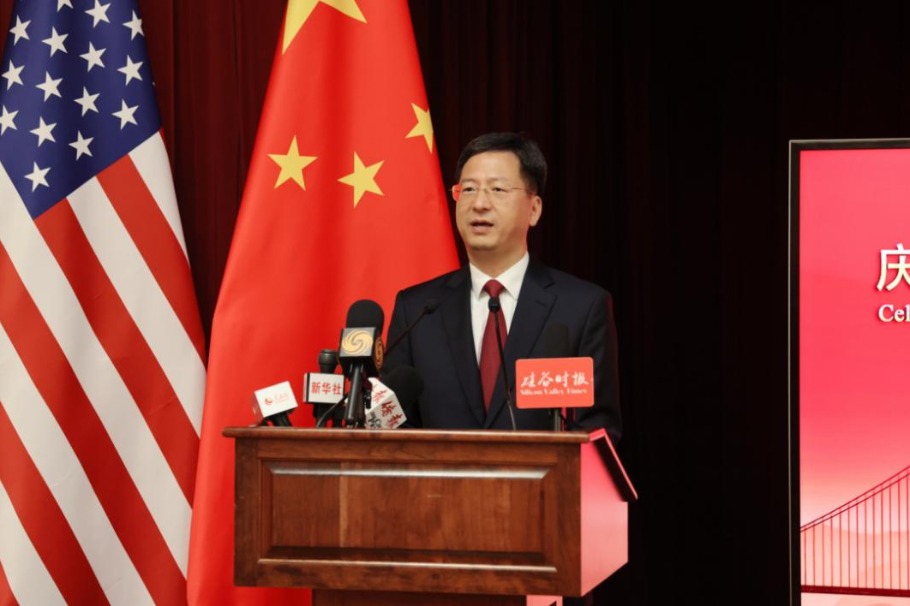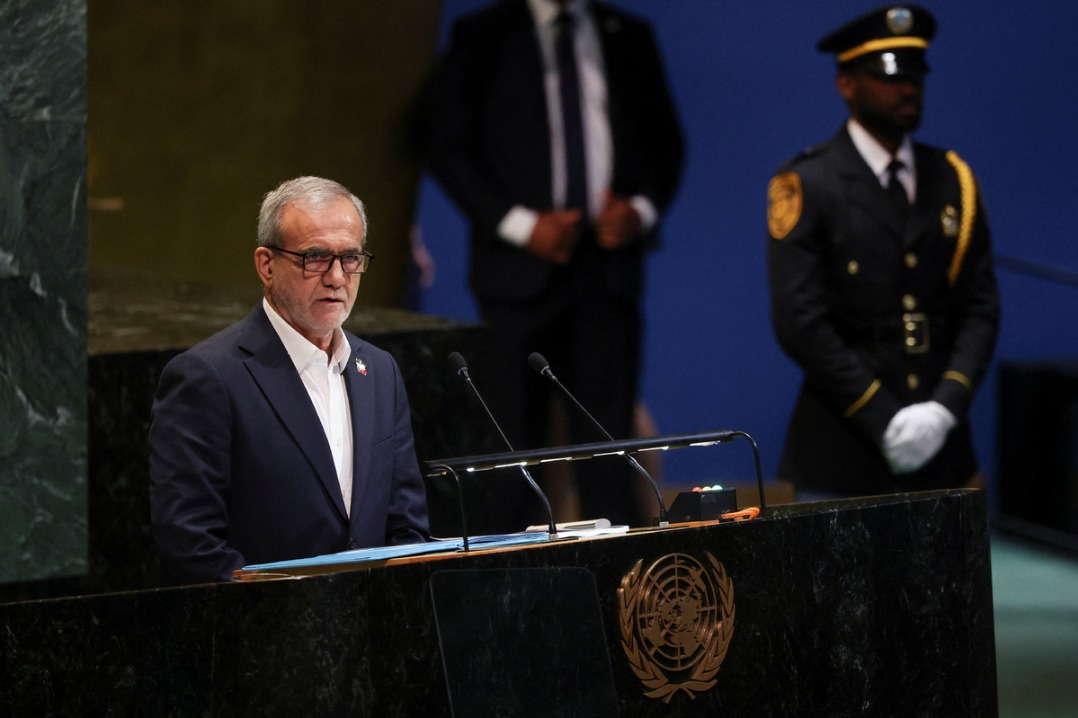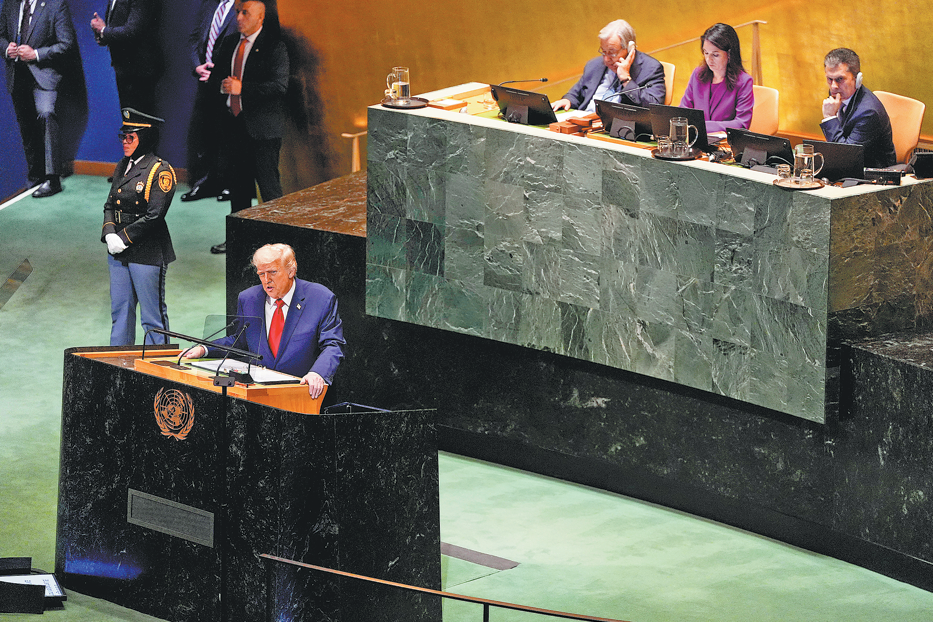Every effort counts to preserve nature

The beautiful city of Montreal, Canada, is these days hosting negotiators, scientists, environmentalists and political leaders from all corners of the world to agree on a framework to halt and reverse nature loss by the end of this decade.
One of the heated discussions in Montreal is about conserving 30 percent of the world's land, freshwater and oceans by 2030. This is a most important target. But apart from conservation, we also need to make sure that all of our use of nature is sustainable, and show sufficient respect for flora and fauna.
Most of the densely populated regions on our planet have been treated with human arrogance up to today. The most valuable ecosystems are found in areas where lots of people are living. There are more natural varieties and wildlife in the regions around the middle and lower reaches of the Yangtze River than in, for example, the Xinjiang Uygur autonomous region. The rich nature is exactly why so many people in history settled there. This is why we need to focus on sustainable use as much as conservation.
The ecological redline is China's world-leading best practice for protecting these vulnerable ecosystems. It offers a scientific approach to providing conservation status to green hot spots in densely populated areas such as the Pearl River Delta, along the Yellow River or in the lower Yangtze region. It is much easier for most nations, like my own country, Norway, to conserve far-away mountains. Our real challenge is to protect nature where it's most threatened, close to centers of great human habitation. The wisdom of China's ecological redline system is that it fulfills two purposes at once: protecting nature and allowing human prosperity. This is a wonderful example of a win-win solution — good for the economy and good for the ecology.
The history of mankind as of the end of the 20th century has been a story of development at the expense of nature. Now, in order to restore nature, we need to mobilize the citizens of the world for win-win solutions to the triple planetary crisis.
First, if we want to create harmony between man and nature, we need to win the hearts and minds of the local people.
One of the shining examples is Rwanda, which, though a small, landlocked country in Africa, has one of the most immensely beautiful landscapes I have seen anywhere in the world. It has been incredibly successful in increasing the number of previously threatened gorillas. If you're a tourist, you pay a substantial amount of money to see Rwanda's gorillas. And that creates a fantastic economy for the taxi drivers, the hotel staff, the teachers and the tourist guides in the neighborhood of Volcanoes National Park. That means that no one in the neighborhood will kill a gorilla for bush meat. The local residents there are the first line of defense for the gorillas, because it is a crucial source of income and a big job creator in the region. It's a win-win solution.
Working with local communities is exactly what Brazilian President-elect Luiz Inacio Lula da Silva is expected to do when he assumes office next year. The indigenous peoples of Brazil are out there in the forest, so they're the people most likely to know exactly what is needed. With the support of the state, police and civil service, indigenous people will protect the wonderful rainforest.
Second, we need to bring businesses on board.
In the past, business was a force of destruction for nature. Jobs came from destroying the beautiful landscapes on Earth. Some hundred years ago in Europe, you could take a horse and ride all the way through forests in Norway to Spain. Now you can see only limited amount of forest in Europe, because the continent is covered with farmland. In other words, we created economic development by destroying nature.
Now, in the 21st century, we can create economic growth and restore nature at the same time.
Indonesia stopped deforestation last year, thanks to a combination of good government policy and good business practice. RGE, a paper, pulp and palm oil company, develops huge conservation areas on the island of Sumatra and protects as much of the green trees as it harvests.
In Ireland, Chinese tech giant Huawei uses its expertise in algorithms and cloud technology to help distinguish between the beautiful sounds of whales, dolphins and porpoises off the country's south coast and the noise from shipping.
Third, we need to work with citizens at large.
President Xi Jinping's call for a Beautiful China does exactly that. Beautiful China speaks directly to my heart because it is positive, it mobilizes patriotic feelings for the homeland, and it gets the innate longing and love of nature out in the open.
In India, the chief minister of the big state of Madhya Pradesh is planting one tree every day to inspire 80 million people in his state to do likewise. The African country of Ethiopia is mobilizing its people to plant trees in their communities, too. Large-scale tree planting needs to be organized by state or business, but every individual can also make an effort, planting a tree in a garden or village.
An ancient Chinese fable from the Song period teaches: It takes the same person who tied the bell around the neck of a tiger to remove it. Nature is declining as a result of human activities. Now, it's a once-in-a-generation opportunity for us all to join hands to reverse the trend.
The author is president of the Belt and Road Initiative Green Development Institute and former executive director of the United Nations Environment Programme.
































